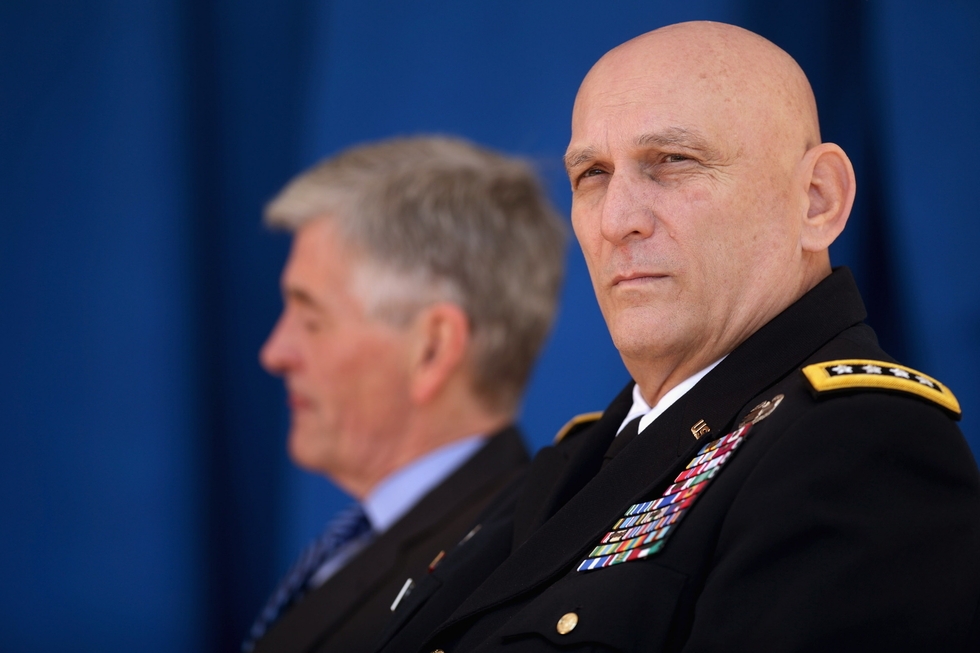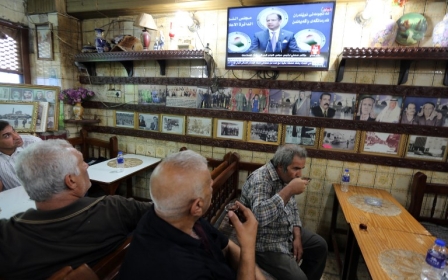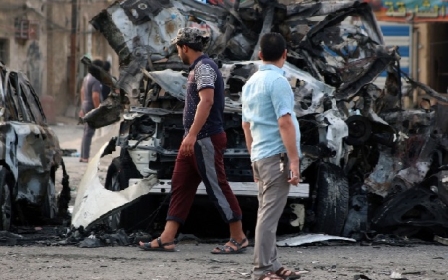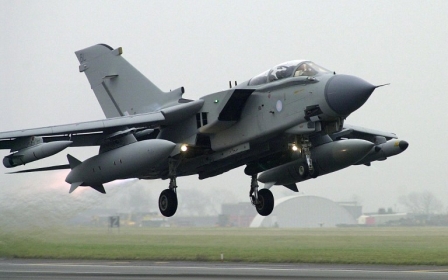Departing US army chief says Iraq may have to be partitioned

WASHINGTON - The US Army's outgoing chief of staff warned on Wednesday that reconciliation between Shias and Sunnis in Iraq is becoming harder and that partitioning the country "might be the only solution".
General Raymond Odierno, who once served as the top US commander in Iraq and retires on Friday after nearly 40 years in uniform, said the US focus for now should be on defeating the Islamic State (IS) group, which has seized large portions of the country.
But in a farewell news conference, he took a pessimistic view about the underlying conflict between Shias and Sunnis that brought the two communities to brink of civil war in 2006.
Asked if he saw any possibility of reconciliation between the two, Odierno said "it's becoming more difficult by the day" and pointed to a future in which "Iraq might not look like it did in the past".
Asked about partition, he said: "I think that is for the region and politicians to figure out, diplomats to figure out how to work this, but that is something that could happen. It might be the only solution but I'm not ready to say that yet."
In the meantime, he said, "We have to deal with ISIL first and decide what it will look like afterwards." ISIL is an acronym some US officials use in referring to IS.
The US military, which withdrew from Iraq in 2011, has resumed training Iraqi forces and select Syrian rebels as part of a renewed effort to contain and eventually roll back IS. US warplanes also are conducting airstrikes against IS targets in Iraq and Syria.
Odierno said IS "has been blunted somewhat" by the airstrikes and Kurdish and to a lesser extent Iraqi forces on the ground.
"I think right now we are kind of at a stalemate and continue to make some progress," he said, adding it was important to continue rebuilding the Iraqi military.
In an interview with Fox News in July, Odierno had more pointed words on the rise of IS in Iraq and Syria – suggesting it didn’t have to be that way.
“It's frustrating to watch it,” Odierno said. “I go back to the work we did in 2007, 2008, 2009, and 2010 and we got it to a place that was really good. Violence was low, the economy was growing, politics looked like it was heading in the right direction.”
Odierno told Fox News that the fall of large parts of Iraq was not inevitable, reiterating concerns about the pace of the US troop withdrawal there.
“If we had stayed a little more engaged, I think maybe it might have been prevented,” he said. “I've always believed the United States played the role of honest broker between all the groups and when we pulled ourselves out, we lost that role.”
Odierno served as the top US commander in Iraq from 2008 to 2010. He had urged that a residual US force be left in country, but the US and Iraqi governments were unable to reach an agreement that would have allowed them to stay.
New MEE newsletter: Jerusalem Dispatch
Sign up to get the latest insights and analysis on Israel-Palestine, alongside Turkey Unpacked and other MEE newsletters
Middle East Eye delivers independent and unrivalled coverage and analysis of the Middle East, North Africa and beyond. To learn more about republishing this content and the associated fees, please fill out this form. More about MEE can be found here.




